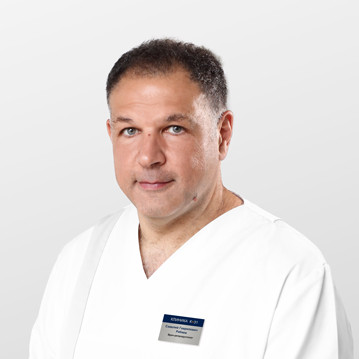Why is it difficult for a healthy couple to conceive?
First, let's figure out what factors affect the success of conception:
- Sperm fertility.
- The patency of the fallopian tubes.
- Having ovulation.
- Receptive endometrium.
There are other factors, but these points are more significant.
If, after a complete examination of a married couple, the cause of infertility is not identified, then a diagnosis of "infertility of unknown origin" is made, which, like other factors of infertility, is coded by the International Classification of Diseases (ICD10).
In some cases, the cause of infertility of unknown origin is a psychological factor.
Often these couples have a spontaneous pregnancy after they have started the examination in preparation for the IVF program. At this stage, patients are distracted by the examination, preparation for stimulation and, as a result, no longer get hung up on the problem of not having a pregnancy, tracking "favorable days" for conception, and so on...
Is it true that a woman feels ovulation and is more eager for intimacy?
This is true. Some women can feel ovulation both physically and psychologically.
Is IVF pregnancy different from natural pregnancy?
Pregnancy after IVF is no different from spontaneous pregnancy. There are only features of early management when the patient is taking hormonal therapy. Otherwise, this is exactly the same pregnancy. She, like natural, requires careful and careful observation.
Is it possible, if a woman wants, to give birth to twins with IVF? Multiple pregnancies are considered pathological (more complex). Our goal is to get a singleton pregnancy and give birth to one healthy baby. Carrying two children is much more difficult. The risk of premature birth and other complications increases. For this reason, when carrying out an IVF program, we most often transfer one embryo into the uterine cavity.
Previously, 2-3 embryos were actually transferred in order to increase the effectiveness of the program. However, now reproductive technologies have reached such a level of development that it is possible to transfer one embryo and wait for the onset of pregnancy with a probability of 65-70%.
It is allowed to transfer two embryos, depending on the specific clinical situation. For example, with several unsuccessful IVF attempts, patients of the older age group, with the woman's persistent desire to transfer two embryos. But the doctor's task is to assess all the chances and risks, to conduct a conversation with the patient, and jointly make the right decision.
Is it possible to get pregnant on your own after IVF?
In some cases, yes, unless, of course, we are talking about the absolute factor of infertility.
What to do if pregnancy does not occur due to bad spermogram?
It all depends on how much the partner's fertility is reduced. If there are minor changes according to spermogram data, and the partner is healthy, with preserved ovarian reserve and passable fallopian tubes, then treatment can begin with intrauterine insemination with the husband's sperm. Usually, this manipulation is carried out no more than 3-4 cycles (months). In the absence of the effect of intrauterine insemination, the IVF + ICSI program is indicated. This is a method of fertilization in which a sperm cell is injected into an egg cell.







